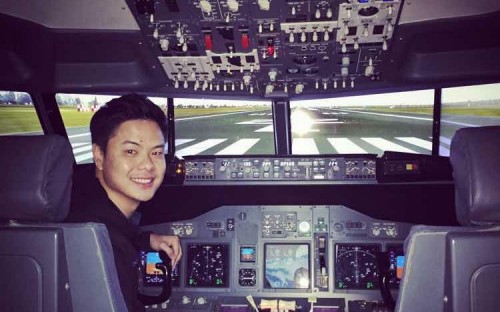Jeffrey Tchui—an MBA graduate from China Europe International Business School (CEIBS)—knows that better than most.
After founding two companies—one in Los Angeles, one in Hong Kong—that helped US firms expand operations into Asia, Jeffrey moved into a business development executive role with Infosys after his MBA. He’s had experience working across the Asia-Pacific and in Shanghai and Shenzhen in China.
“To break the Chinese market, I needed more than industry expertise,” he explains. “I needed something different, more focused on culture, networking, and a comprehensive understanding of China. That’s why I decided to do an MBA at CEIBS.”
BusinessBecause caught up with Jeffrey to find out why he thinks China is the go-to place for MBAs.
Market growth
Over the last five years, Jeffrey explains, the Chinese market has become more advanced than Hong Kong. The market there has stagnated over the last three-to-four years, he adds.
Jeffrey puts this down to the three cities that make up China’s economic power belt—industrial capital Beijing, commercial center Shanghai, and tech-hub Shenzhen. Hong Kong, he says, is a “hodgepodge” of all three cities, combined with European and Western flair. China’s growth over the last five years has set it apart.
In China, startups become viable industry competitors almost overnight; size and reputation don’t factor in as much—quite the opposite in Hong Kong.
“It’s much more exciting,” Jeffrey says of the Chinese market. “Change happens so fast. Lots of businesses merge and get started quickly with a faster amount of due diligence.”
Internationals
Hong Kong’s tradition for finance, Jeffrey says, means that the expats he encounters there are from a distinctly European-based group. “You normally see a Brit, a German, or a Frenchman,” he explains.
China though, is “more comprehensive in terms of its international focus,” Jeffrey adds. “At CEIBS, I learned how to work with Brits, Americans, Germans, Chinese, Africans, people from Russia and the Middle East. It was a very different experience.”
The MBA classroom at CEIBS is made up of Chinese students, alongside 40% international students. Jeffrey says this gave him an array of perspectives with which to approach his business dealings.
Development
On the CEIBS MBA, quarterly career treks take teams of students to various parts of China based on their areas of interest. Beijing, Shanghai, and Shenzhen feature heavily in this part of the curriculum. The treks offer students first-hand experience of doing business in China.
During his MBA, Jeffrey worked on an expansion project with American engineering company Emerson, together with government-backed Chinese firms, focusing on geothermal and wind power in Vietnam. The key goal for Emerson was how to sell its technology and services in conjunction with Chinese partner companies.
This project was related to China’s Belt and Road Initiative—a huge infrastructure development project designed to boost trade along the old Silk Road route—which is creating new career opportunities for MBA students, with more western companies keen to expand into Asia.
A unique environment
Jeffrey sat on the student committee at China Europe International Business School during his MBA, responsible for overseeing the day-to-day workings of the school’s main campus in Shanghai.
Dealing with infrastructure, the cafeteria, the parking lot, the transportation of bikes, and the internet—all areas influenced by the Chinese government—meant he gained a good insight on how to run a company from a Chinese perspective.
For Jeffrey, the CEIBS MBA—not Hong Kong—was a gateway into a post-MBA career in China.
“Whenever I’m in China it’s all about understanding the Chinese business cycle, and being respective of the cultural dynamics,” he says. “That’s the most effective way to close deals.”








